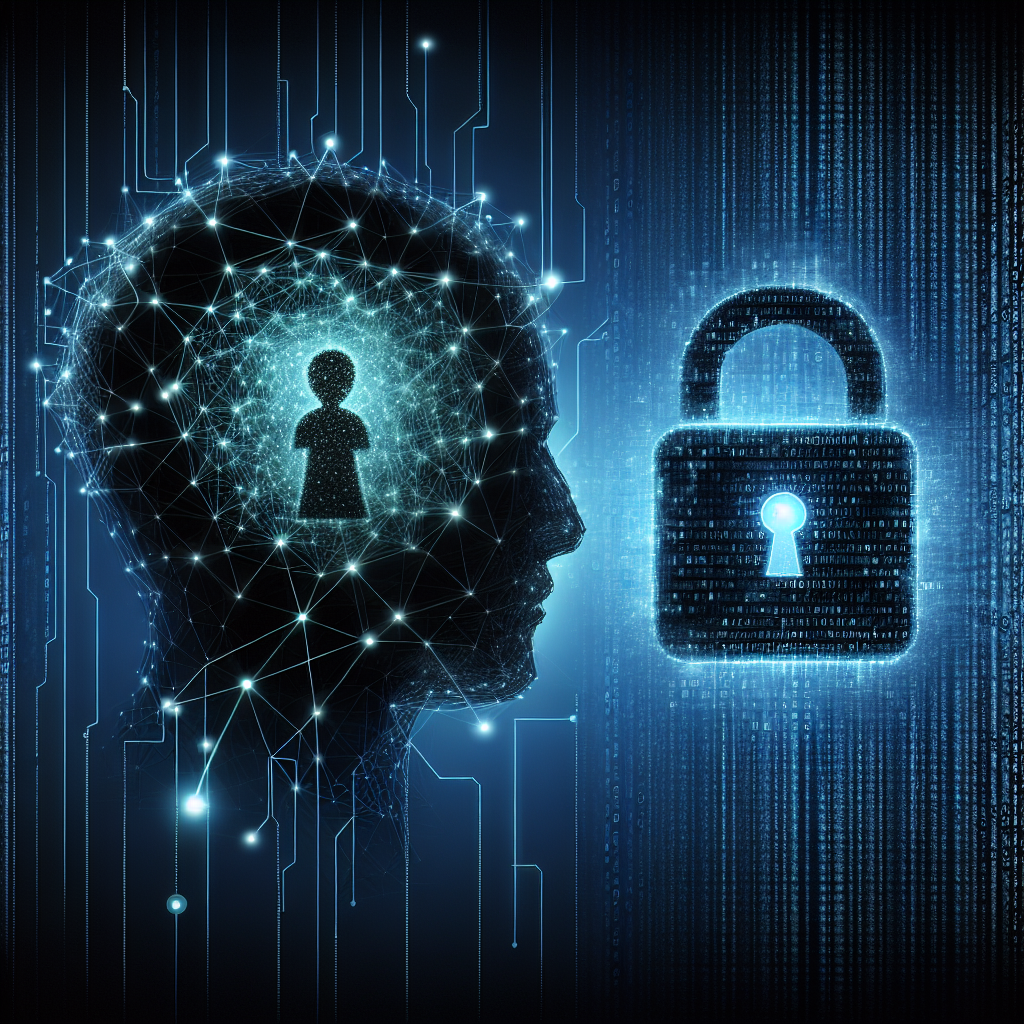AI in Cybersecurity: Separating Fact from Fiction
Artificial Intelligence (AI) has become a buzzword in the field of cybersecurity, with many claiming that it is the future of protecting networks and data from cyber threats. However, there is also a lot of misinformation and hype surrounding the role of AI in cybersecurity. In this article, we will separate fact from fiction and explore the real impact of AI on cybersecurity.
Fact: AI is a Powerful Tool in Cybersecurity
One of the biggest misconceptions about AI in cybersecurity is that it is a magic bullet that can solve all security issues. While AI is a powerful tool, it is not a panacea for all cybersecurity challenges. AI can help improve the efficiency and effectiveness of cybersecurity measures, but it is not a substitute for human expertise and judgment.
AI can be used to automate routine tasks such as monitoring network traffic, identifying patterns of suspicious behavior, and responding to security incidents. This can help cybersecurity professionals focus on more complex and strategic tasks, such as analyzing threats and developing proactive security measures.
AI can also be used to detect and respond to cyber threats more quickly and accurately than traditional security tools. AI-powered systems can analyze vast amounts of data in real-time, enabling them to identify and respond to threats in a matter of seconds rather than hours or days. This can help organizations mitigate the impact of cyber attacks and prevent data breaches.
Fact: AI Can Help Predict and Prevent Cyber Attacks
One of the most powerful applications of AI in cybersecurity is its ability to predict and prevent cyber attacks. AI-powered systems can analyze historical data to identify patterns and trends that indicate potential security threats. By using machine learning algorithms, AI can predict future cyber attacks and help organizations take proactive measures to prevent them.
For example, AI can analyze network traffic to identify anomalies that may indicate a cyber attack in progress. AI can also analyze social media and other sources of open-source intelligence to identify potential threats before they materialize. By using AI to predict and prevent cyber attacks, organizations can stay one step ahead of cyber criminals and protect their data and networks more effectively.
Fact: AI Can Help Improve Incident Response
Another key benefit of AI in cybersecurity is its ability to improve incident response. When a cyber attack occurs, AI-powered systems can help cybersecurity professionals identify and respond to the threat more quickly and effectively. AI can analyze security logs, network traffic, and other sources of data to identify the source of the attack, the methods used by the attacker, and the extent of the damage.
AI can also help automate incident response processes, such as isolating infected systems, blocking malicious IP addresses, and updating security policies. By using AI to improve incident response, organizations can minimize the impact of cyber attacks and recover more quickly from security incidents.
Fiction: AI Can Replace Human Expertise
One of the biggest myths about AI in cybersecurity is that it can replace human expertise. While AI can automate routine tasks and help improve the efficiency of cybersecurity operations, it cannot replace the insights, judgment, and creativity of human cybersecurity professionals.
Cybersecurity is a constantly evolving field, with new threats emerging every day. Human expertise is essential for staying ahead of cyber criminals and developing effective security measures. While AI can help augment human expertise and automate routine tasks, it is not a substitute for the skills and experience of cybersecurity professionals.
Fiction: AI is Invulnerable to Cyber Attacks
Another common misconception about AI in cybersecurity is that AI-powered systems are invulnerable to cyber attacks. While AI can help improve the detection and response to cyber threats, AI-powered systems are not immune to attacks themselves.
Cyber criminals are increasingly targeting AI systems with sophisticated attacks, such as adversarial attacks and data poisoning. Adversarial attacks involve manipulating the input data to fool the AI system into making incorrect decisions, while data poisoning involves injecting malicious data into the training dataset to compromise the AI model.
To protect AI-powered systems from cyber attacks, organizations must implement robust security measures, such as encryption, access controls, and anomaly detection. Organizations must also regularly update and patch AI systems to protect them from emerging threats.
FAQs
Q: How can organizations implement AI in cybersecurity?
A: Organizations can implement AI in cybersecurity by deploying AI-powered security tools, such as intrusion detection systems, threat intelligence platforms, and security analytics platforms. Organizations can also develop custom AI models to address specific security challenges, such as fraud detection, malware analysis, and incident response.
Q: What are the benefits of using AI in cybersecurity?
A: The benefits of using AI in cybersecurity include improved threat detection and response, faster incident response, and proactive security measures. AI can help organizations stay ahead of cyber criminals and protect their data and networks more effectively.
Q: What are the limitations of AI in cybersecurity?
A: The limitations of AI in cybersecurity include the potential for adversarial attacks, data poisoning, and false positives. Organizations must implement robust security measures to protect AI-powered systems from cyber attacks and ensure the accuracy and reliability of AI models.
Q: How can organizations ensure the security of AI-powered systems?
A: Organizations can ensure the security of AI-powered systems by implementing encryption, access controls, and anomaly detection. Organizations must also regularly update and patch AI systems to protect them from emerging threats.
In conclusion, AI is a powerful tool in cybersecurity that can help improve threat detection and response, predict and prevent cyber attacks, and improve incident response. While AI is not a magic bullet that can solve all security challenges, it can help organizations stay ahead of cyber criminals and protect their data and networks more effectively. By separating fact from fiction and implementing robust security measures, organizations can harness the power of AI to enhance their cybersecurity posture and defend against cyber threats.

